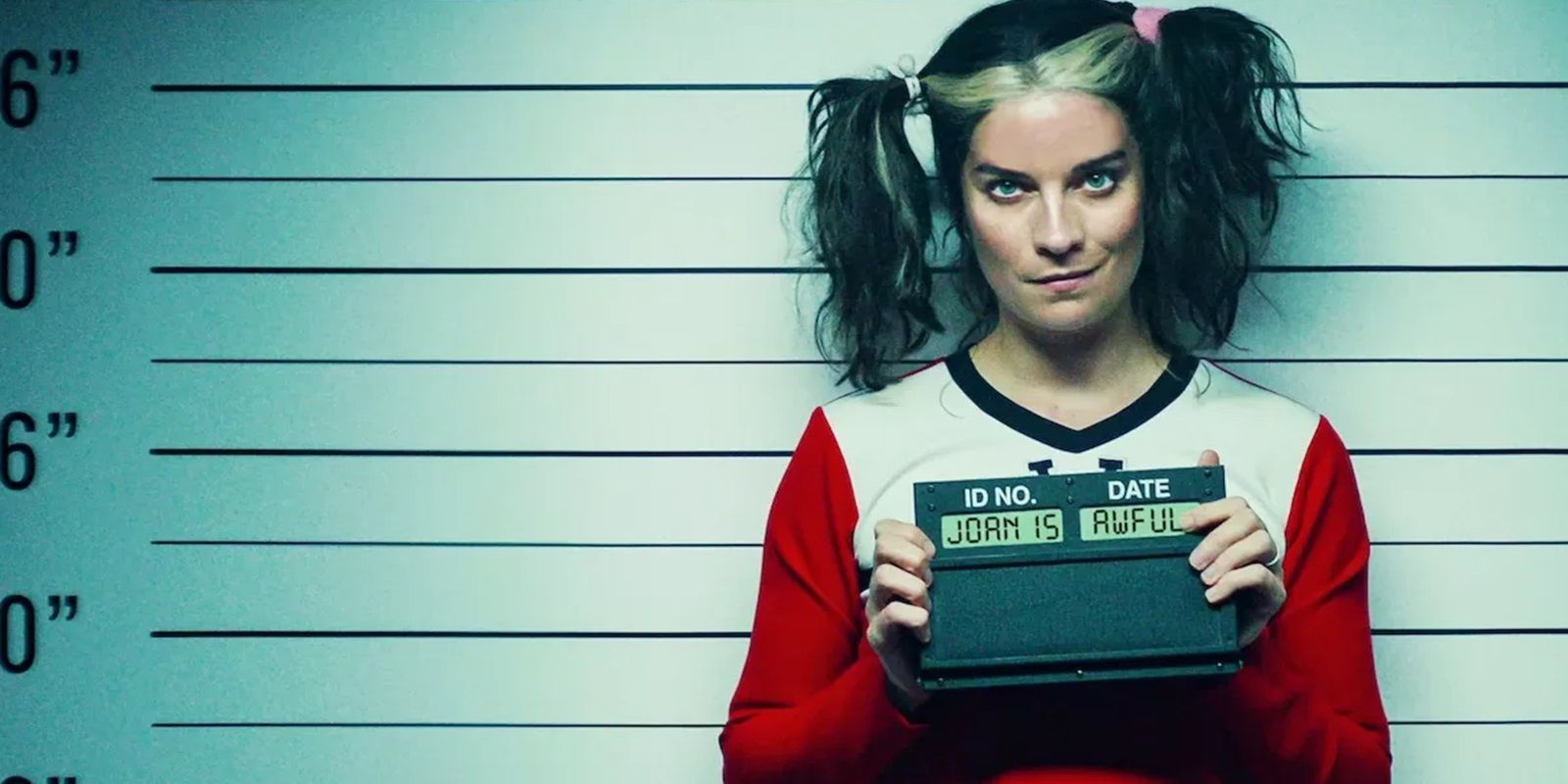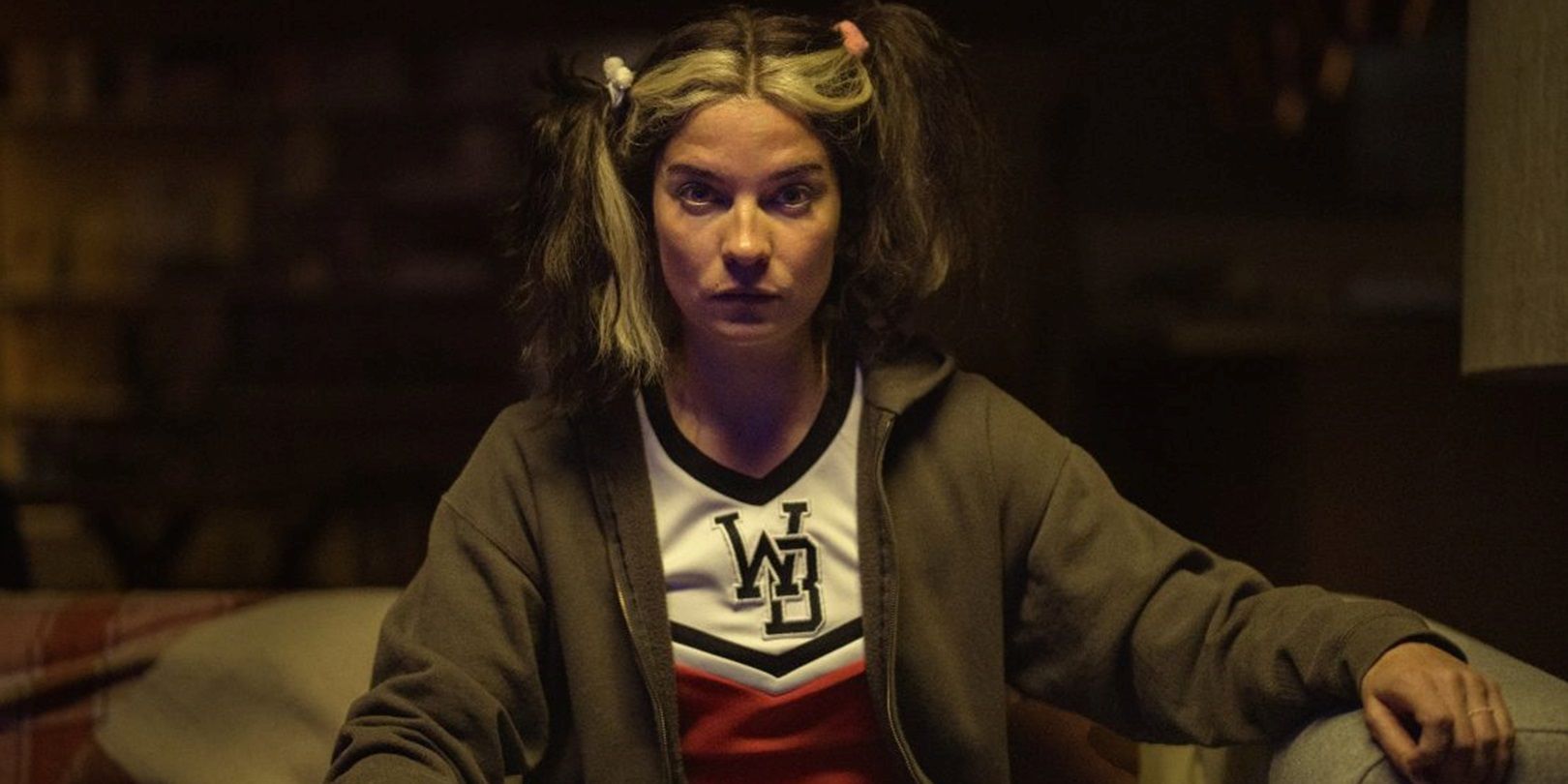
Why 'Joan Is Awful' Marks the Darkest 'Black Mirror' Yet

Black Mirror Season 6 Episode 1 'Joan Is Awful' delivers an entertaining and thought-provoking exploration of the dangers of social media obsession, with standout performances from Annie Murphy and a cleverly crafted meta narrative
The opening episode of Black Mirror season 6, titled “Joan is Awful,” pokes fun at the cut-throat nature of streaming content creators and their relentless pursuit of captivating their audience. The storyline follows an ordinary woman who suddenly discovers that her life has become the subject of a high-profile television drama featuring Salma Hayek. As the series unfolds, the shocking revelations in the show end up wreaking havoc on her life, causing her fiancé to leave her, getting her fired from work due to disclosed company secrets, and alienating everyone in her social circle as they witness the true, unfiltered Joan.
While the concept of an ordinary person stumbling upon a show that dramatizes their own life is intriguing, "Joan is Awful" fails to fully explore the potential of this premise. Although the episode briefly touches on issues such as A.I. generated content, deepfake technology, and data collection, these ideas are not fully integrated into the plot. This stands in contrast to the South Park episode "HUMANCENTiPAD," which delves into the unintended consequences of blindly accepting terms and conditions from tech companies.
In terms of humor, "Joan is Awful" is one of the more light-hearted episodes of Black Mirror, with a scene featuring the titular character experiencing a bout of diarrhea in the middle of a wedding ceremony. While this may be a departure from the show's typically dark and twisted plot lines, it serves as a palatable entry point for viewers before the season takes a darker turn.
Annie Murphy Delights As Usual
Annie Murphy, who gained fame as Alexis Rose in Schitt's Creek, delivers a charming performance as Joan. She effortlessly handles both the comical and the more serious moments, just like she did in her previous role. As the story revolves around Joan's perspective, the episode rests on Murphy's star power, and she doesn't disappoint. Whether she's correcting her mundane daily activities on the TV or experiencing a panic attack after realizing that her deepest secrets are now available to the whole world, Murphy's performance is phenomenal.
While some talented supporting actors like Himesh Patel and Rob Delaney are underutilized with glorified cameos, Salma Hayek's portrayal of an exaggerated, Curb-ified version of herself generates plenty of laughter. She mentions her movie Frida casually in conversation, threatens Joan while saying "you're lucky I'm a humanitarian," and reassures herself with the words "I am Salma f***ing Hayek!" when plotting to break into Streamberry's offices. Even as the episode becomes self-aware, Hayek's performance consistently delivers humor.
Going Down The Meta Rabbit Hole
The success of any Black Mirror episode lies in its ability to explain its curious premise, and this one does not disappoint. The initial twist of the CEO of Streamberry turning every user's life into a show is horrifyingly brilliant, as it taps into the audience's desire for self-doubt, neurosis, and introspection. This message about the callous and inhuman approach of the streaming market to audience engagement is driven home by the episode's landing. However, the show takes it one step further by revealing that the Joan we see isn't the real Joan, but rather the version of Joan that the real Joan watches on TV.
Michael Cera, who is underused in his role as the architect of Streamberry's content, attempts to explain to Joan that she is actually the digital version of Schitt's Creek star Annie Murphy. This revelation is reminiscent of the end of Sausage Party, where the characters discover that they are voiced by Seth Rogen and Edward Norton. While the idea of an average woman watching her life play out in a streaming series is intriguing, it is far more captivating than the reveal that she was already a part of a streaming series all along.
While "Joan is Awful" initially delivers a sharp commentary on the artificiality of television, it ultimately loses its impact by delving too deeply into abstract concepts. The show's depiction of Joan's flaws is both entertaining and thought-provoking, but its attempt to explore complex themes like quantum computing feels forced and detracts from the overall message. Despite these flaws, the episode is redeemed by the captivating performance of star Joan Murphy and the compelling idea of art imitating life, making it a worthwhile addition to the beloved Black Mirror franchise.















